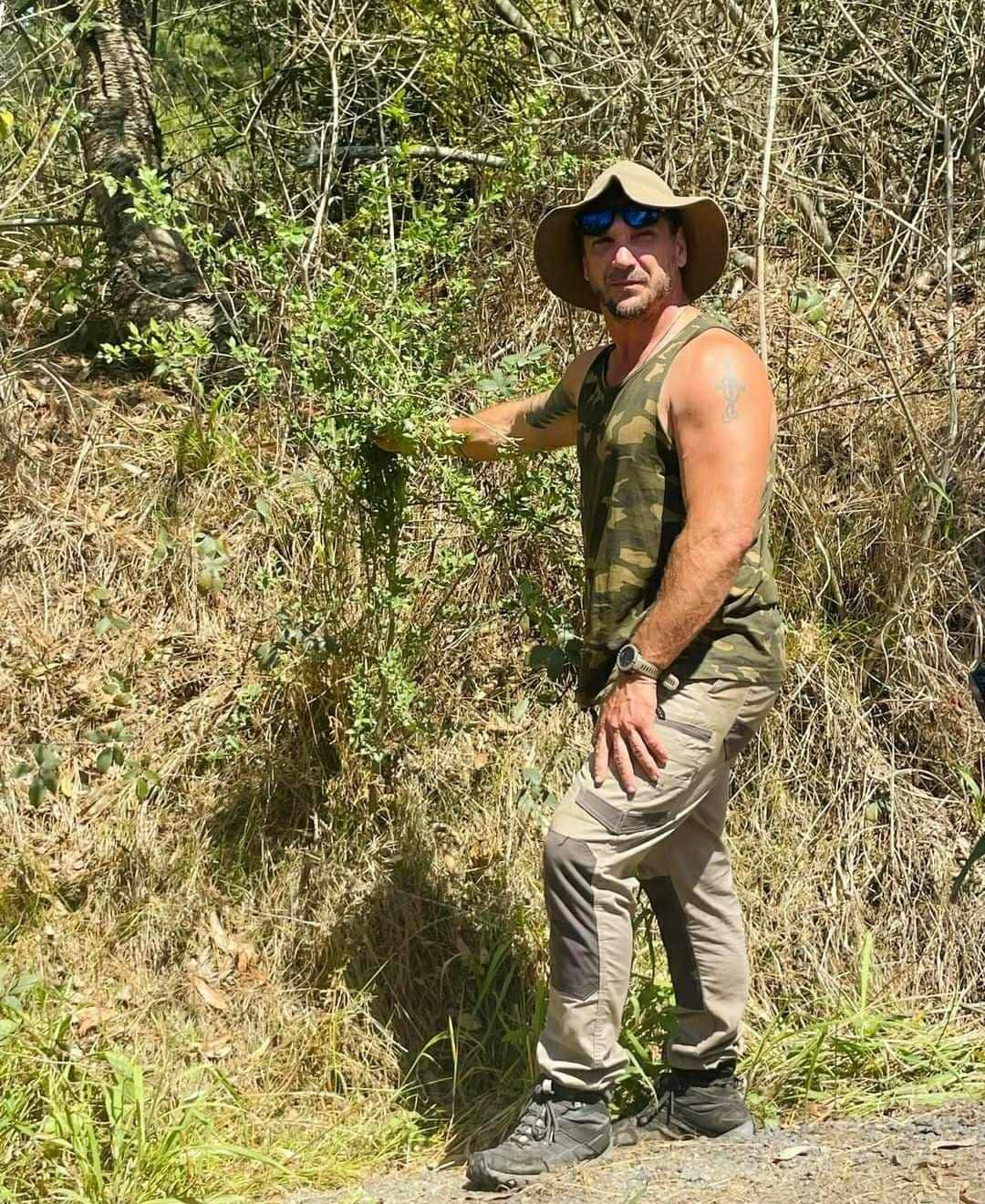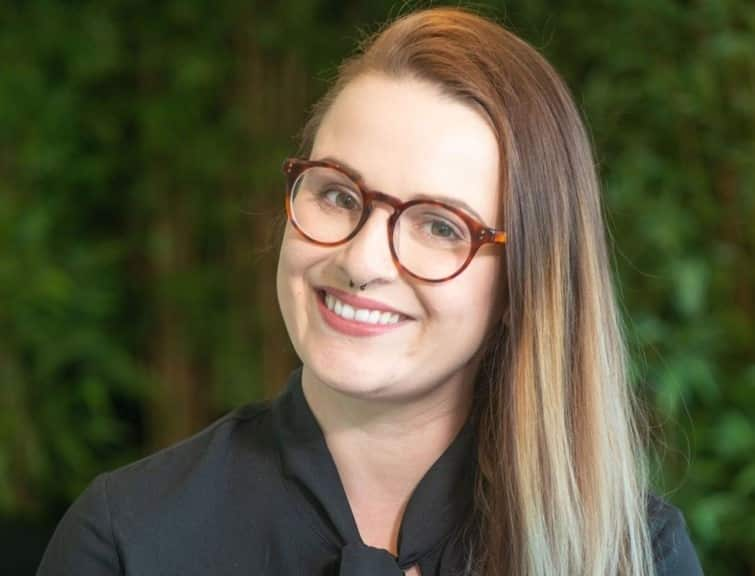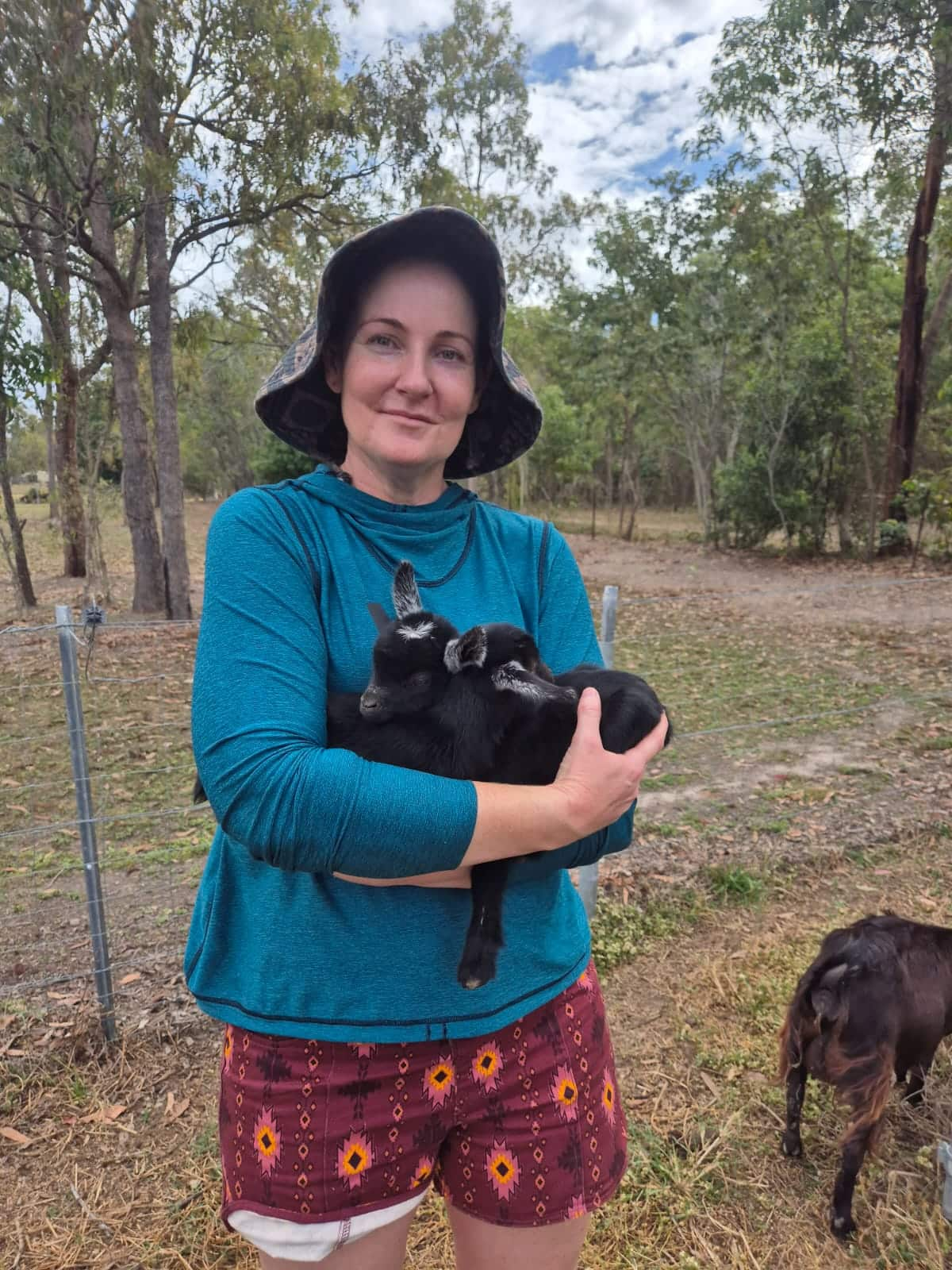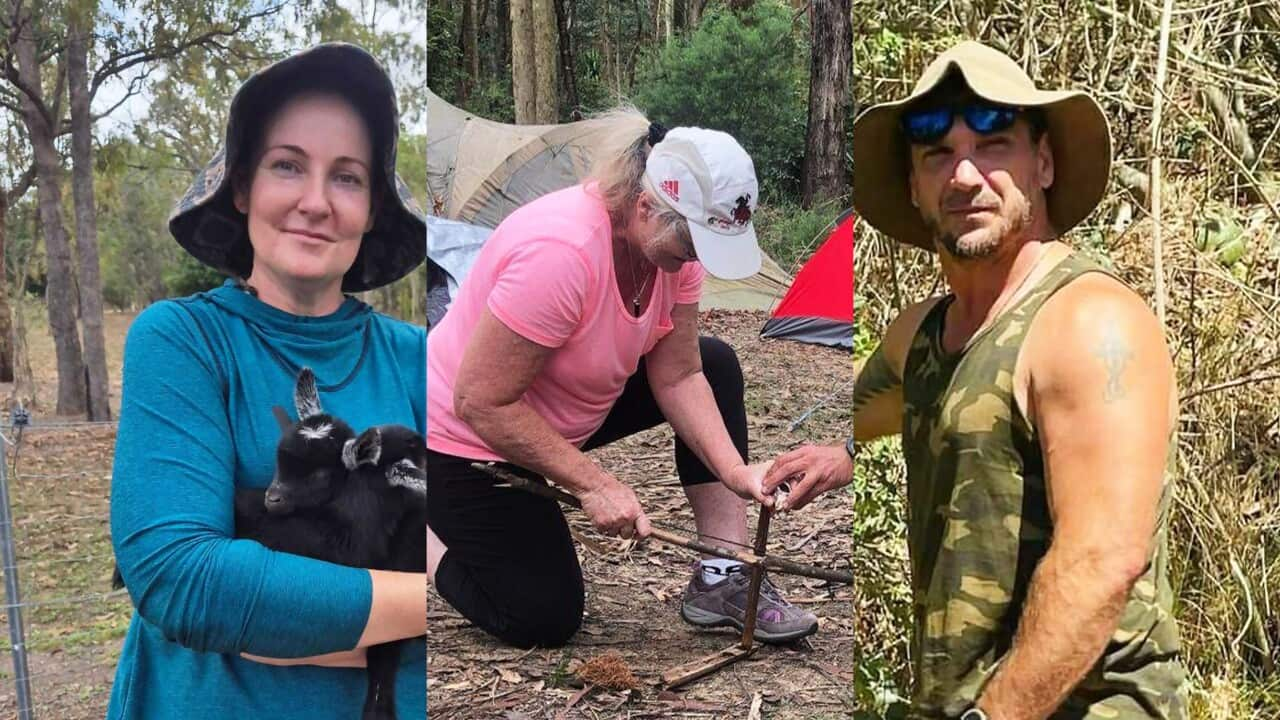How does our perception of the future impact our behaviour in the present? Watch Insight episode End of Days on
Vicki wasn’t always a prepper.
She spent her working life as a teacher and school principal.
Now in her 60s, she never anticipated spending her retirement learning survival skills.
A prepper is a person or a community who believe a catastrophic disaster or emergency is likely to occur some time in the future and makes active preparations for it, typically by stockpiling food and other supplies.
“I expected to be sitting back and relaxing and spending time with my grandchildren,” Vicki told Insight.
But when the world shut down due to the COVID-19 pandemic, Vicki started to see signs of a shift in the world.
“The way that I view the world is that I know that things are changing,” she said.
“I know that the world that we’re living in right now is not the world that is going to continue. It just can’t.”
Jake Cassar teaches survival skills. Source: Supplied
Not all preppers
Stereotypes for preppers may conjure images of fallout shelters, endless stores of tinned beans and even tin foil hats.
But for Vicki, prepping is just getting ready for another transition. Whether it’s a world war, a global food shortage or a cyber attack, Vicki set out to learn how to live off-grid in order to give herself the best possible chance of survival.
After buying a motorhome, she started seeking knowledge and skills to help her in an uncertain future.
She met Jake Cassar, a long-time survivalist also based in the NSW Central Coast.
“As soon as my mum put me on the ground, she reckons, I went and found a stick before I could walk, and I started digging and looking for grubs,” Jake said.
He is an Australian ‘bushcraft’ teacher and tracker specialising in finding and using edible and medicinal wild plants, who has been teaching classes in bush survival for 20 years.
“Some people have got all the right gear and no idea,” he said.
“You’ve got to really know what you’re doing when it comes to what foods you can and can’t eat.”
He says his classes attract people from all walks of life, but since COVID he’s had a huge uptake in enrolments.
“Everyday people are coming along. And we’re seeing a growing movement of people that are taking positive action when it comes to prepping and survival,” he said.
A survival of the cooperative
Jake believes the most important part of the prepper lifestyle is community.
“It’s survival of the cooperative, rather than survival of the fittest,” he said.
“I’m hoping that when humanity gets the epic kick in the ass, whether it’s through another world war, climate issues, or natural disasters, then we actually start to realise that all that matters is that we look after our loved ones, that we care for our community.
“If that can become the foundation or like a code of conduct for humans then I think that’ll be an enormous positive.”
As well as practical skills and building community, Jake says the prepper lifestyle has done wonders for his mental and physical health.
“It’s about getting out and having fun, getting fit, getting healthy out in the environment, reconnecting with our our ancestral roots for, for all people,” he said.
“We’re out having a happy and healthy existence.”
For Jake, there’s no specific scenario to prep for, but being prepared is the rational way forward.
“Whether it’s for airborne disease, whether it’s military, whether the truckies have gone on strike because of something.”
“You saw how crazy everyone went without toilet paper after a couple of days!”
We are sensation-seeking beings
David Christian is a historian.
He says people are drawn to end of the world scenarios because they excite us.
But there are negative impacts.
“The world of media creates an unnecessarily negative view of the possibilities, and the great danger of that is it destroys hope,” he said.
“Because hope itself is a crucial resource in working towards a better future.”
While we might find ourselves down a rabbit hole of conspiracy theories and experience anxious thoughts about the future — experts say there’s another reason why we are drawn to believe the end is nigh.
Dr Evita March is an expert in Cyberpsychology
How digital media impacts our survival mechanisms
Evita March is an expert in cyberpsychology, specialising in how digital media affects us and our mental, physical well-being.
She says humans seek out negative news as an evolutionary survival mechanism. Eva says we are primed towards ‘bad news’ and our negativity bias is a survival aid.
“We are constantly looking on the outlook for threats in our environment, it helps us survive,” Evita said.
She says there’s a direct correlation between the media we consume and our outlook.
“The more you would be exposed to information and news that depicts war, crime, famine, pandemics, the more you might start to feel a sense of hopelessness about the future. It’s pretty understandable,” she said.
But Evita says it all needs to be put in perspective.
“The climate emergency aside, there’s nothing really novel about what is happening in the world today that hasn’t actually occurred before.”
“There has been war, there has been pandemics, there has been colourful political figures in the past.
Nerida and her partner Abraham are homesteaders, they say the key is to be self-suffient enough to withstand whatever disaster may come their way.
The difference between homesteaders vs preppers
Nerida Firth, 41 and her partner Abraham, 35, are self-described homesteaders.
The say the difference between preppers and homesteaders, is that homesteaders strive to adopt a completely self-sufficient lifestyle rather than preparing for a world-ending event.
They live on acreage and grow 75 per cent of their food.
Abraham works as an engineer and Nerida is a pharmacist.
At home, they use their skills in horticulture, butchery, mechanics — and they’ve already come in handy.
After recently losing power for almost a week, Nerida and Abraham were able to live comfortably at home while others were left without access to food, water and other basic necessities.
For them, there is no apocalypse on the horizon, but they want to be secure in case of the unexpected.
“We’re more concerned about just being able to get ourselves through some natural disasters rather than the world ending,” Nerida said.
Change is coming
While Vicki isn’t certain about what form it might take, she is convinced a change isn’t far off.
She says the US elections in November and the current cost of living crisis could encourage more people to embrace prepping.
“We have a lot of things that are teetering on the edge, I know some people see prepping as there’s going to be some big apocalypse occur, and that could well happen,” Vicki said.
But she says this might not necessarily be a bad thing.
“Ultimately, I think something needs to happen to shift the way that we’ve been because we are on a trajectory that is actually harming the planet and harming people.
“But that’s why I say don’t live in fear, just be prepared for it,” Vicki said.
And for more stories head to , hosted by Kumi Taguchi. From sex and relationships to health, wealth, and grief Insightful offers deeper dives into the lives and first-person stories of former guests from the acclaimed TV show, Insight.
Follow Insightful on the , , , or wherever you get you get your podcasts.



